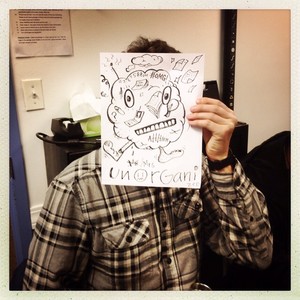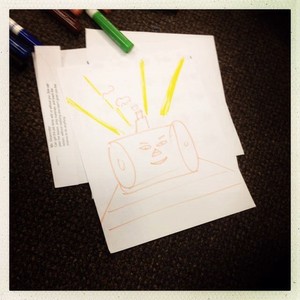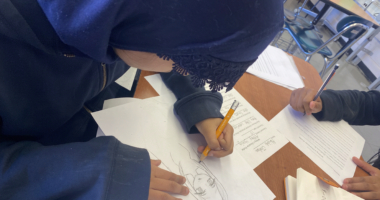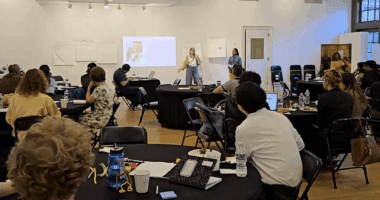During March’s Teaching Artist Training & Internship Program (TATIP) Friday Debrief we discussed some of the different personality types we might come across as we set out to co-teach in our artistry.

One of these personalities was “Ms. Steamroller.” She is a control freak who insists on doing things her way, tends to take over every lesson, has little regard for her partner’s ideas and opinions, and generally makes it very hard for her partner to feel like he/she is contributing. As the other program participants talked about whether they are this personality or that one, I realized I was Ms. Steamroller, and had been for a long time.

Growing up as I did, it is easy to feel like you have absolutely no control over anything happening in your life. That being the case, when opportunities arise that allow you to direct things, it’s natural to be eager to take charge. As a student, my partners in class were always more than happy that I took command of group projects. I received good grades and they believed that if they did as I instructed, they too would achieve a good grade. There were, however, a couple of times when classmates, who I knew to be very smart, made suggestions. But if they opposed my ideas in the slightest, I vetoed the idea. I didn’t want to risk following through with someone else’s idea and getting an A-, when I knew my way was sure to get an A. In adulthood, this behavior has caused a lot more problems and it has called for me to make changes to how I generally operate.
Many of the projects we worked on in TATIP have been group oriented, and because a lot of the work we do is interdisciplinary, I haven’t had an issue with taking suggestions. After all, I can’t presume to know more about another kind of art than someone who is actively creating it. But I know there will come a time when that won’t be the case, when I will have to collaborate with another fiction writer on a lesson and I know that will be more difficult. Fortunately, I have my mentor Teaching Artists, Elizabeth Leonard and Maria Schirmer to look to for guidance.
At PS 132, the curriculum is a lot more focused on writing than acting. I asked early on why this was, and was told that it was the classroom teacher’s request. More importantly, I noticed that though Elizabeth is the writer, it never seems like she is doing more work than Maria. I asked about this too, expecting them to say it was something they’d honed in on after years of working with one another, and was astonished to discover that not only was this their first time working together, but it was Elizabeth’s first year with CWP and her first time co-teaching! After learning that Maria is a writer in addition to an actor, and that she had gone through the TATIP program as well, things began to make more sense.
No one is perfect. Everyone is a person they don’t really want to be from time to time, and that’s okay. What’s important is that you recognize your issues and make proactive steps at resolving them. Putting yourself in a position where you’re receiving feedback from other people you respect, like we do in the TATIP program, is a great opportunity to do that. I’ve seen my evolution as the program has progressed. I remember how controlling I was when my partner and I wrote our first lesson (sorry Kadeem!), and how it drastically changed when we created our teaching path. Now that we are working on a second lesson, which I will co-teach in a matter of days, I am proud of the true partnership I have formed. I was able to take suggestions and modifications and work with my partner until the lesson was something that represented both of us, and highlights both of our strengths. Though I haven’t taught the lesson yet, I know it will be great, if only because of how proud I am of the way it was created. I’ve come a long way as a co-teacher and though I’m sure I still have a ways to go, I look forward to the many things I still have to learn.



